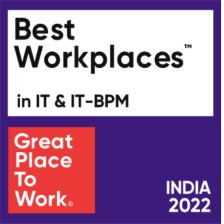Navigating the Digital Transformation: Skills and Training for Today’s Medical Administrators
Imagine stepping into a healthcare world that’s vastly different from just a decade ago. Here, a staggering 90% of healthcare providers operate on Electronic Health Records (EHRs), a dramatic leap from a mere 10% in the previous decade. This isn’t a scene from a futuristic movie; it’s the current landscape of healthcare, transformed by the relentless tide of digital innovation. Such a seismic shift in technology isn’t just changing how care is delivered; it’s revolutionizing the role of medical administrators. Today, they’re not just healthcare professionals; they’re digital navigators, steering the ship of medical administration through uncharted technological waters.
The Changing Face of Medical Administration
Medical administration, once dominated by paper-based processes, is now at the forefront of technological innovation. The implementation of EHRs, telemedicine, and data analytics tools has significantly altered the day-to-day operations in healthcare settings. These changes are not merely about technology adoption but represent a fundamental shift in how healthcare is delivered and managed.
The Rise of EHRs and Its Impact
The adoption of EHRs has been one of the most significant shifts in healthcare. According to a report by the Office of the National Coordinator for Health Information Technology, over 85% of hospitals have adopted EHR systems. This shift means that medical administrators must be adept at managing digital records, understanding health informatics, and ensuring data security and compliance with regulations like HIPAA.
Telemedicine: A New Frontier
Telemedicine has seen a dramatic rise, particularly accelerated by the COVID-19 pandemic. A study by McKinsey estimated that telehealth usage has increased 38 times from the pre-COVID-19 baseline. This surge has brought new challenges and opportunities for medical administrators, from managing virtual care logistics to ensuring seamless patient experiences.
Essential Skills for the Digital Era
In this digital era, the skill set required for medical administrators has expanded. It now includes:
Technical Proficiency: Understanding and Efficiently Using EHRs and Telehealth Platforms
In today’s healthcare landscape, proficiency with Electronic Health Records (EHRs) and telehealth platforms is fundamental. It involves not just navigating these systems but understanding their functionalities thoroughly. Administrators need to adeptly manage patient information, enter data accurately, and utilize these digital platforms to streamline workflows. This proficiency ensures efficient communication among healthcare providers, seamless patient care, and the ability to leverage digital tools effectively for better patient outcomes
Data Management: Skills in Managing, Analyzing, and Securing Patient Data
Medical administrators must possess robust data management skills. This involves not only organizing and storing patient data but also analyzing it effectively to generate insights. Understanding data trends aids in making informed decisions for patient care and operational efficiency. Additionally, ensuring the security and confidentiality of patient information is crucial. Skills in compliance with HIPAA regulations and other data privacy laws are essential to safeguard patient data from breaches and cyber threats.
Change Management: Leading and Adapting to Technological and Procedural Changes Within Healthcare Settings
The healthcare industry is continually evolving with technological advancements and procedural changes. Medical administrators need strong change management skills to navigate these transformations effectively. Leading teams through these changes, encouraging the adoption of new technologies, and facilitating smooth transitions within healthcare settings are vital aspects. They need to inspire confidence among staff members, create buy-in for changes, and ensure seamless integration of new procedures or systems into daily workflows.
Compliance and Regulatory Knowledge: Keeping Up with Evolving Health Information Laws and Regulations
Staying updated with evolving health information laws and regulations is imperative. Medical administrators must possess a deep understanding of compliance requirements such as HIPAA, GDPR, or other regional laws governing patient privacy and data security. They should be well-versed in interpreting these regulations, implementing necessary changes in healthcare practices to remain compliant, and ensuring that staff members adhere to these standards rigorously.
Training and Professional Development
Continuous training and professional development are key to keeping medical administrators at the forefront of digital healthcare. Institutions should invest in regular workshops, certifications, and seminars focused on emerging technologies and healthcare trends. Creating a culture of continuous learning is essential to stay ahead in the rapidly changing healthcare landscape.
On the flip side, it’s equally important for professionals to proactively embrace digital skills pertinent to their roles. In today’s digital age, online learning resources are abundant, making self-learning more accessible than ever. These platforms allow individuals to learn at their own pace, tailoring their educational journey to fit their schedules and preferences. Medical administrators should take advantage of such channels to enhance their skills.
The Path Forward
Digital transformation in healthcare is not a temporary phase but a fundamental evolution in how healthcare services are delivered and managed. Medical administrators play a critical role in this transformation. Their ability to adapt, learn, and lead in this digital age is crucial for the effective and efficient delivery of healthcare services.
At Compunnel, we are dedicated to empowering medical administrators and allied healthcare professionals to excel in their roles amidst this digital shift. With our in-house Subject Matter Experts (SMEs) and robust learning infrastructure, our healthcare consultants have seamless access to pertinent training and educational resources that help them stay at the forefront of this evolving landscape.
Are you a medical administrator or healthcare professional steering through the digital transformation in healthcare? We extend a warm invitation to join our exclusive online forum, tailored for professionals like you. Engage in sharing experiences, learning from peers, and staying updated with the latest trends in digital healthcare.







